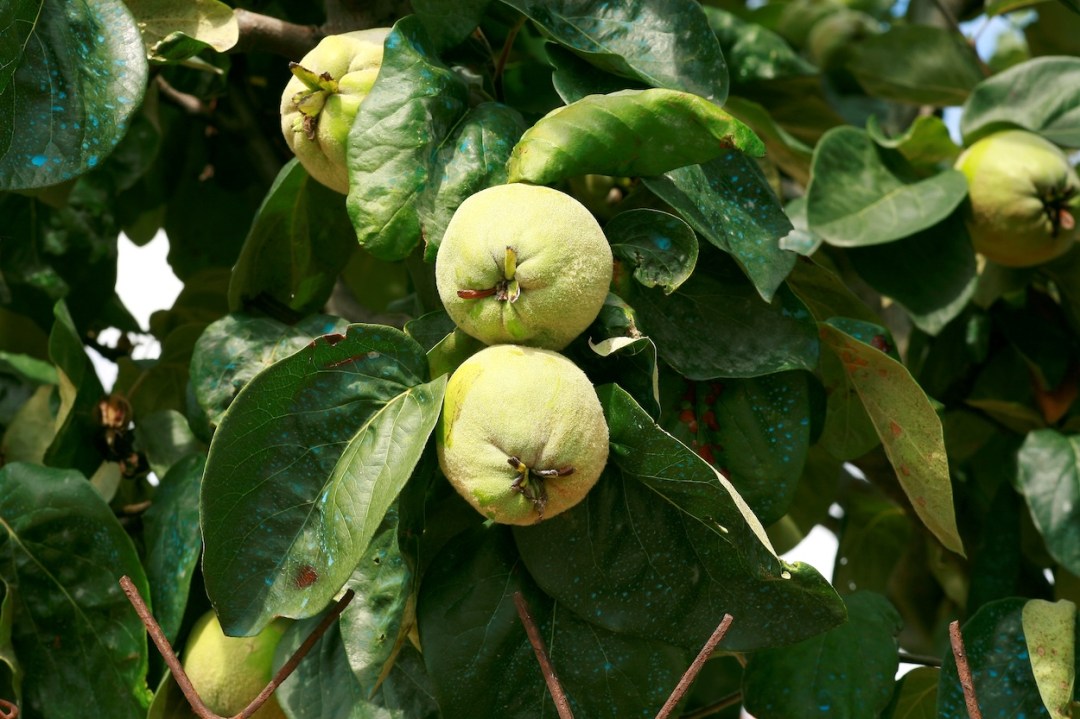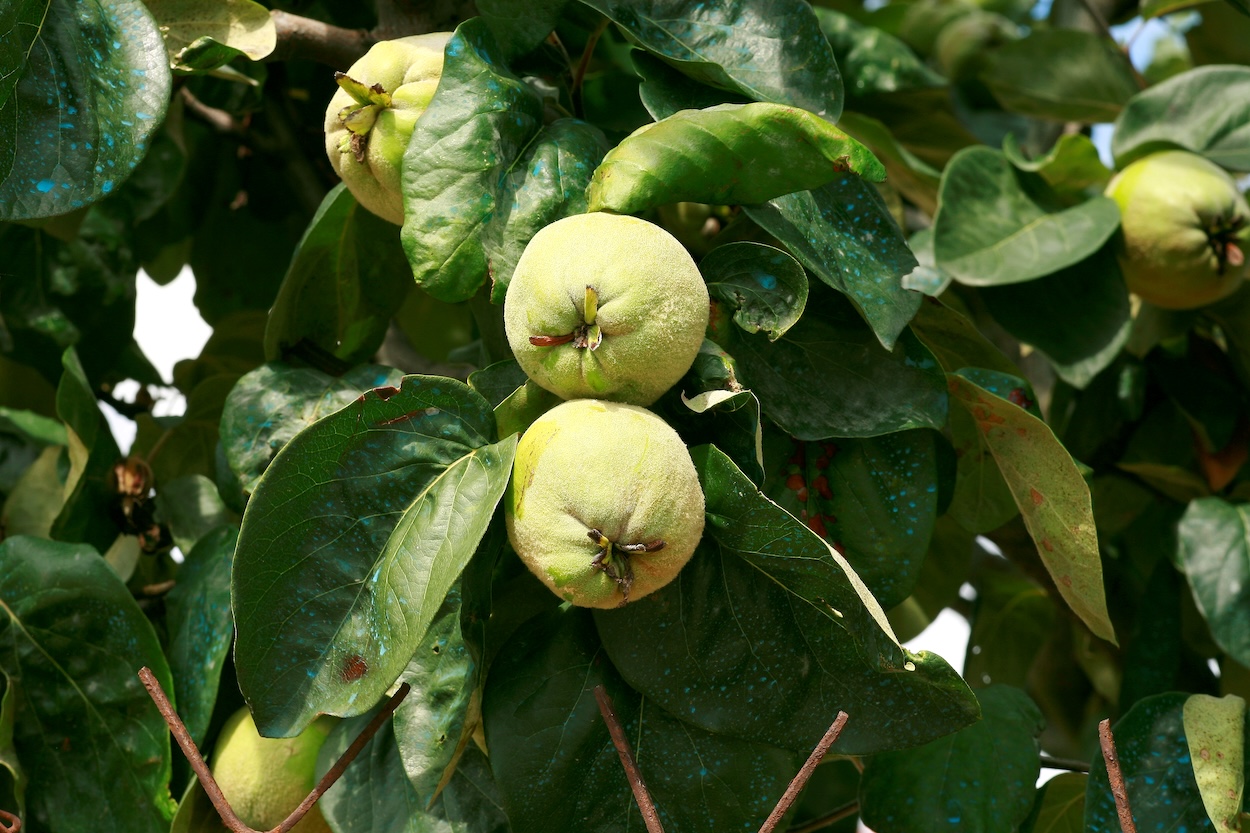My quince tree thrives – proof that nature can overcome adversity. I planted it, and I am a bad gardener. Childhood hours spent waiting for my mother to finish watching Gardeners’ World left me with fond memories of Percy Thrower, but in place of horticultural skill I inherited indolent incompetence.
Our garden did not seem so big when we moved from a flat a decade ago. But for most of the second half of the 20th century, the former occupant of our house had been a keen gardener. Carefully planted beds, it turns out, need care, which I have failed to provide.
Each spring I wage a blood feud with ground elder, to the point where I hallucinate its leaves. In summer I normally grow tomatoes and courgettes – this year has been the first exception, and my wife was silently and obviously pleased, her view being that supermarkets exist to free up garden space for flowers. This autumn I raised the topic of putting some more spring bulbs in the lawn. Personally, I think they look good, although my wife has not forgiven me for the last time. She regards it as deranged, but I think it splendid to see a spring lawn enlivened by unexpected hyacinths.
Quince, however, are my current joy. There have not yet been many mists, but I have mellow fruitfulness galore. Admittedly, I now see the tree was badly planted. When I put it in five years ago, I appear to have believed half its roots would prefer the air; they stand a foot proud of the soil. The tree has aspirations to be a mangrove.
That the leaves often show a fungal blight has been confidently attributed, by my wife, to my having given the tree a disadvantage in life. She is probably right – it is one of her infuriating qualities – but this year the fruit is marvellous. The branches are laden with wonderful, yellow, pear-shaped quince, and they make me happy.
For the Ancients, when they thought of a fruit they often thought of quince. Apple was a generic term – hence pommes de terre being potatoes and pomodori tomatoes. The golden apples of the Hesperides, that Hercules stole as his eleventh labour, were quince, as they are carved in Olympia’s Temple of Zeus. When the woman singing the Song of Solomon praised her lover above other men – ‘as the apple tree among the trees of the wood, so is my beloved’ – she was comparing him to quince, as when she said that his fruit was sweet to her taste. Desire and food have long entwined.
Peeled and simmered in an equal mix of white wine, water and sugar, quinces soften and become ready for dishes savoury or sweet. The burnished fruit so revered by history goes as well alongside lamb and venison as stirred into stews or made into tarts. Adding quince to an apple pie is a great improvement. Since Eve ate apples, Byron wrote, much depends on dinner. What Eve raised to her lips was probably a quince, but otherwise Byron was right.
Making the most of whatever is in my fridge is a mild obsession and a source of joy. The Spectator’s Digby Anderson said a good kitchen runs on the solera system. Combining whatever happens to be in the fridge into a meal gives me daily satisfaction, while following recipes does not. Once they are simmered and in my fridge, those quinces will make their way into a host of meals – although my taste is savoury, making them more likely to accompany roast pork belly, or a chicory and gorgonzola salad, than to appear beside ice cream.
Gardens are proof that the world loves us and wants us to be happy
Strange how this creative, resourceful impulse dies at the kitchen door. Most of my quince will fall unused, as will almost all the apples from the trees that have been in this garden for decades. Once they’re bletted I’ll harvest more medlars than I’ll ever use. Even the ground elder I laboriously pick in spring gets wasted. The Romans – curse them – introduced the plant as an edible green, available before much else, but I find the taste bland, and the seasonal shortages that worried the Romans in Britain have long since been dispatched by capitalism and supply chains. Efficiency is a great aid to living but gardens are there for other reasons.
What is this life if, full of care,
We have no time to stand and stare.No time to stand beneath the boughs
And stare as long as sheep or cows.
This afternoon I will pick some quince, and lying on the kitchen table their fragrance will steal into the air. Bucolic history, and a sense that the natural world is generous, will scent my hours. Gardens are proof that the world loves us and wants us to be happy.
I remain envious of those who are good gardeners, and mystified by their talent. My wife tells me – with rather more spirit than is necessary – I’m a bad gardener because I don’t listen and I don’t seek advice, even when planting a tree. When she cooks, she prefers a recipe. If she made more of the meals I suspect her preference would change; if I did more of the weeding I might find good gardens less mystifying. At least we agree that leaving fruit unpicked does not diminish the pleasure of seeing it on the bough.
‘If I had teeth of pearl and the breath of lilies I should call it languor,’ wrote Keats, of his mood on a lazy morning, ‘but as I am I must call it laziness.’ There are many things to enjoy in life, and it is pleasant to be reminded that talent and energy are not always needed. Being a bad gardener is no barrier to enjoying a garden.








Comments